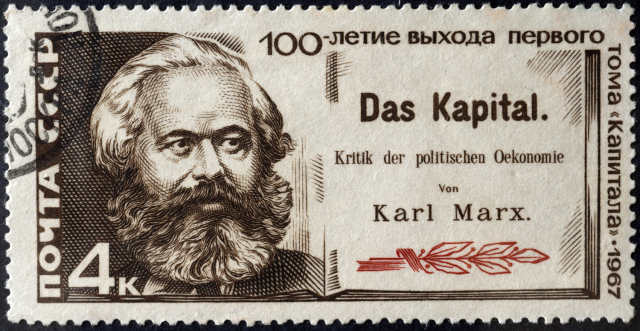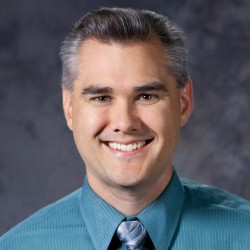We Shouldn’t Use a Term Coined by the System’s Enemies!
Wouldn’t it be nice if we could simply invent new terms to replace the words that seem to cause more heat than light? For example, I have written before of my qualms about using the word capitalism to describe the free-market economy. The word was coined by capitalism’s enemies to describe the system that they rejected.
Red Plenty, a marvelous book by Francis Spufford, offers an important perspective on our discussion of terms. The book is a must-read for fans of free markets. It combines elements from the actual history of the use of mathematics to try to plan the Soviet economy, fictional dialogue and some fictional characters, and Spufford’s excellent understanding of the economics of capitalism and socialism to create an incredibly readable account of the attempt to engineer a world of abundance in the former Soviet Union.
In the senior seminar I teach, we recently read a section of the book that deals with how the Soviet planning process actually worked. That section got me thinking about the terms capitalism and socialism again. The term capitalism suggests a system built around capital and its interests, while the word socialism suggests one built around society and its interests. Notice how these connotations beg some questions from the start.
Is it really true, for example, that capitalism is centered around capital and its interests? Is it really capitalists who benefit the most from capitalism? And on the other side: have existing socialist economies ever served the interests of society as a whole? Could socialism, in theory, do so? Do both of these names make assumptions about each of the two types of economies that reflect the biases of capitalism’s critics and socialism’s defenders?
Of course, capital does play a crucial role in capitalism. The private ownership of capital (the means of production) is a defining characteristic of a free-market economy, especially in comparison to socialism. And the ability to engage in economic calculation provided by the money prices of the market is crucial for the owners of capital to know how best to deploy it. So in those senses, capitalism is about capital.
But notice that nowhere in the previous paragraph is it claimed that the primary beneficiaries of capitalism are the capitalists! What is missing is an answer to the question of why the capitalists continually have to figure out how best to deploy their capital. The answer is because they are constantly trying to provide what consumers want using the least valuable resources possible.
Sure, the capitalists reap profits by doing so. But those profits result from the mutually beneficial exchanges capitalists have with consumers.
The main beneficiaries from capitalism are not the capitalists, but all of us in our role as consumers. Competition among the owners of private capital is all about responding to consumers’ wants. And consumers benefit from this arrangement through more, better, and cheaper goods. If we want a name for the free-market economy that indicates who its primary beneficiaries are, we should reappropriate the term consumerism.
But “consumerism” is only half of the story. It’s easy enough to show through the standard arguments that socialism doesn’t work for the benefit of society as a whole. We know from the socialist-calculation debate that eliminating the market altogether in favor of planning can’t work. But what about all of those countries, like the Soviet Union, that claimed to be planning their economies?
As we see in Red Plenty, the truth was that central planning served as a kind of myth around which economic activity could be oriented. Everyone acted as if there were a plan, but the actual way resources got allocated and shuffled around was much more complicated. In Red Plenty, we meet two characters who help us see this.
First is Cherkuskin, the middleman who trades on relationships and friendships to help producers get the goods they need to meet their centrally planned targets. Cherkuskin is the personification of what Ayn Rand called “the aristocracy of pull.” His power comes from whom he knows and what he can get them to do for you. When producers don’t have enough to fulfill their quotas because of the inability of the plan to allocate rationally or to respond to unexpected change, the Cherkuskins come into play and move resources around to help them — and to profit handsomely in the process. Underneath “the plan” was the black market that did a great deal to ensure that Soviet-style economies were minimally functional.
The other character is Maksim Maksimovich Mokhov, a high-ranking bureaucrat in the planning agency. Faced with the news of the destruction of a crucial machine, Mokhov has to figure out how to rebalance the plan given that one factory will either need a new machine or fail to produce the output that other factories need. Spufford gives us terrific imagery of Mokhov sliding around on his wheeled chair, abacus in hand, going from file to file using technology primitive by even the 1962 standard of that chapter of the book, attempting to reallocate resources with the flick of an eraser and the scratch of a pencil.
Both Cherkuskin and Mokhov are, functionally, substitutes for what the price system does under capitalism, and inferior substitutes at that.
But what’s most interesting is that neither of them cares one whit about the consumer. Cherkuskin is all about making sure that producers get what they need to fulfill the plan, never pausing to consider what the costs were for consumers. Mokhov describes consumers as a “shortage sink” because they are the end of the line, and if they don’t get what they want, no one else relies on them for further output. It was more important to balance out production than to worry if consumers got exactly what they needed.
What Spufford so nicely illustrates here is how real-world socialism, and not capitalism, put the needs of “capital” first and the wants of consumers last. In a world where producing more stuff, regardless of its value, was the path to plenty, ensuring that production continued according to the plan and that producers got what they needed were the central tasks. And the black market middlemen like Cherkuskin could make a real ruble or two doing so.
But unlike the profits of market capitalists, Cherkuskin’s rubles came at the expense of the consumer rather than reflecting mutual benefit. A system where consumers are just the folks who are expected to absorb the errors of the plan is hardly one geared to the interests of society as a whole. And a system where capital is ultimately the servant of consumers is misleadingly named if we call it capitalism.
It’s a difficult battle to get people to change the names they’ve long used for free markets and (supposedly) planned economies. Even if we don’t win that battle, it’s still important for us to point out how the terms capitalism and socialism really do give a false impression of how markets and planning work. If we want to know who really benefits from markets, a quick look around the abundance that is the typical American household will answer that question quite clearly.
 Steven Horwitz
Steven Horwitz
Steven Horwitz is the Charles A. Dana Professor of Economics at St. Lawrence University and the author of Hayek’s Modern Family: Classical Liberalism and the Evolution of Social Institutions.
He is a member of the FEE Faculty Network.
 WASHINGTON, D.C. /PRNewswire/ – Hands down Democratic Presidential Candidate Bernie Sanders is leading in the Iowa and New Hampshire polls, which may have Hillary Clinton’s team on the edge of their seat. Nonetheless, Sen. Bernie Sanders (I-VT) remains abundant with support from a political committee Americans Socially United that started this time a year ago before he announced his official candidacy for the presidential race.
WASHINGTON, D.C. /PRNewswire/ – Hands down Democratic Presidential Candidate Bernie Sanders is leading in the Iowa and New Hampshire polls, which may have Hillary Clinton’s team on the edge of their seat. Nonetheless, Sen. Bernie Sanders (I-VT) remains abundant with support from a political committee Americans Socially United that started this time a year ago before he announced his official candidacy for the presidential race.





 ABOUT MICHAEL HICHBORN
ABOUT MICHAEL HICHBORN